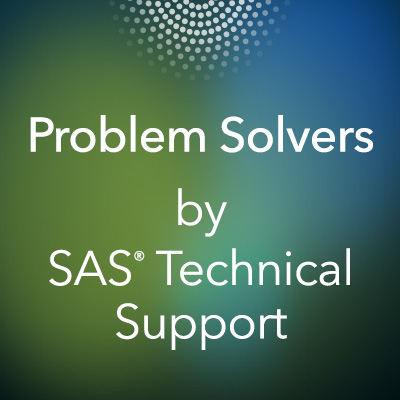SAS Training & Placement Program on SAS Data Scientist: Epoch Research Institute India oldest SAS Training Partner :
EpochResearch Institute India Pvt Ltd. (SASAuthorised Training : Ahmedabad | Bangalore)
please contact us on: info@epoch.co.in or visit us website: www.epoch.co.in
SAS Training & Placement Program on SAS Data Scientist: Epoch Research Institute India oldest SAS Training Partner :
EpochResearch Institute India Pvt Ltd. (SASAuthorised Training : Ahmedabad | Bangalore)
EpochResearch Institute India Pvt Ltd. (SASAuthorised Training : Ahmedabad | Bangalore)
Article: http://blogs.sas.com/content/sastraining
By Thomas H. Davenport
"Big data" has excited many executives with its potential to
transform businesses and organizations. The concept refers to data that
is either too voluminous, too unstructured, or from too many diverse
sources to be managed and analyzed through traditional means. The
related concept of "high-performance analytics" (HPA) involves using
new technologies to dramatically accelerate the speed of large-scale
analytical projects.But prospering from big data and HPA takes more than simply employing new technologies. Firms will need to build new capabilities to deal with this new resource, even if they are already experienced users of analytics.
One of the most important capabilities is "data scientists" to do the day-to-day work of big data management and analysis. I interviewed more than 30 of them in a recent study, and here's what you need to know:
What is a data scientist?
Data scientists are hybrids of technologists and quantitative
analysts. They work in a variety of organizations, from big data
startups to large, established companies like GE, Intuit and EMC.GE, for example, expects to hire more than 400 computer and data scientists at its new Global Software and Analytics Center in San Francisco to focus on big data for industrial products, such as locomotives, turbines, jet engines and large energy generation facilities.
Data scientists have somewhat different roles from traditional quantitative analysts. Whereas traditional analysts typically use analytics on internally generated data to support internal decisions, the focus of many data scientists is on customer-facing products and processes, where they help to generate products, features, and value-adding services. For example:
- At the business social network LinkedIn, data scientists developed the “People You May Know” and “Jobs You May Be Interested In” features of the site, among others.
- GE is already using data scientists to optimize the service contracts and maintenance intervals for industrial products.
- Google, of course, uses its roughly 600 data scientists to refine its core search and ad-serving algorithms.
- Zynga uses data scientists to target games and game-related products to customers.
- In health care big data firms, data scientists try to discover the most effective treatments for different diseases.
Data scientists who focus on HPA applications don't necessarily need to understand how to process unstructured data, but they do need to understand how analytical work can be divided across multiple parallel servers. They should be able to explore a variety of ways to use the extra time from HPA to refine their models. In addition, they need to try to accelerate decision speeds to match the much faster cycle times of data analysis.
Skills required
Data scientists require technical, business, analytical and
relationship skills. From a technical standpoint, many have advanced
computer science degrees, or advanced degrees (often PhDs) in fields
such as physics, biology or social sciences that require a lot of
computer work.They're not just programmers; many refer to data scientists' computational skills as "hacking" – bending technology to do their bidding in unusual ways. The specific technologies on which data scientists focus include:
- Hadoop, MapReduce, and the related ecosystem of distributed file system tools.
- Programming languages such as Python, Java, Pig and Hive.
- Machine learning.
- Nontraditional database tools such as Vertica and MongoDB.
- Natural language processing.
- Statistical tools.
Of course, the combination of these skills is difficult to find in one person, so some companies have created data science teams that together embody this collection of skills.
Finding data scientists
In a recent Economist Intelligence Unit survey of 600 global executives, 54 percent of North American respondents said finding the right people with the right skills is the No. 1 obstacle to launching a successful big data project. Where can an organization find data scientists?There are few, if any, academic programs in the area, although several are being designed now. Most organizations, however, must recruit and hire individuals from other backgrounds who have skills related to data science. For example, George Roumeliotis, the head of a data science team at Intuit in Silicon Valley (and himself a PhD in astrophysics), seeks people who can develop prototypes in a mainstream programming language such as Java, and have a solid foundation in math, statistics, probability and computer science. He also looks for a feel for business issues and empathy for customers.
There are a variety of other approaches in use to develop and hire data scientists. EMC has determined that the availability of data scientists will be an important gating factor in its own big data efforts and those of its customers. So it has created a "Data Science and Data Analytics" training program for its employees and customers. Some large consulting firms are beginning to offer data scientists to their clients. And a Silicon Valley program, the Insight Data Science Fellows Program, takes scientists for six weeks and teaches them the skills to be a data scientist.
For More Information on SAS Training & Placement Program on SAS Data Scientist please contact us on: info@epoch.co.in or visit us website: www.epoch.co.in
Source : http://blogs.sas.com/content/sastraining
Epoch Research Insitute Links:
Email us: info@epoch.co.in
SAS Training & Placement Programs with Internship: Epoch Research Institute India Largest and Oldest #SASTraining Institute (#epochsastraining)
EPOCH RESEARCH INSTITUTE OFFERS:
Authorized SAS TRAINING | SAS CERTIFICATION | SOFTWARE PURCHASE | BUINESS CONSULTING | TECHNICAL SUPPORT ON SAS || SAS STAFFING SOLUTION
Label:
#SASELEARNING,#SASELEARNING,#SASONLINETRAINING,
#SASONLINETRAININGFORBEGINNERS,#LEARNSASPROGRAMMINGONLINE,
#SASCLINICALONLINETRAINING,#SASBASEONLINETRAINING
#BIGDATASASTRAININGEPOCH,#SASBIGDATATRAINING #EPOCHRESEARCHINSTITUTE, #SASTRAINING, #EPOCH SAS FEEDBACK,
#CLINICALSASPROGRAMMING, #EPOCHCLINICALSASPROGRAMMING.
#CLINICALSASPROGRAMMING, #EPOCHCLINICALSASPROGRAMMING.





